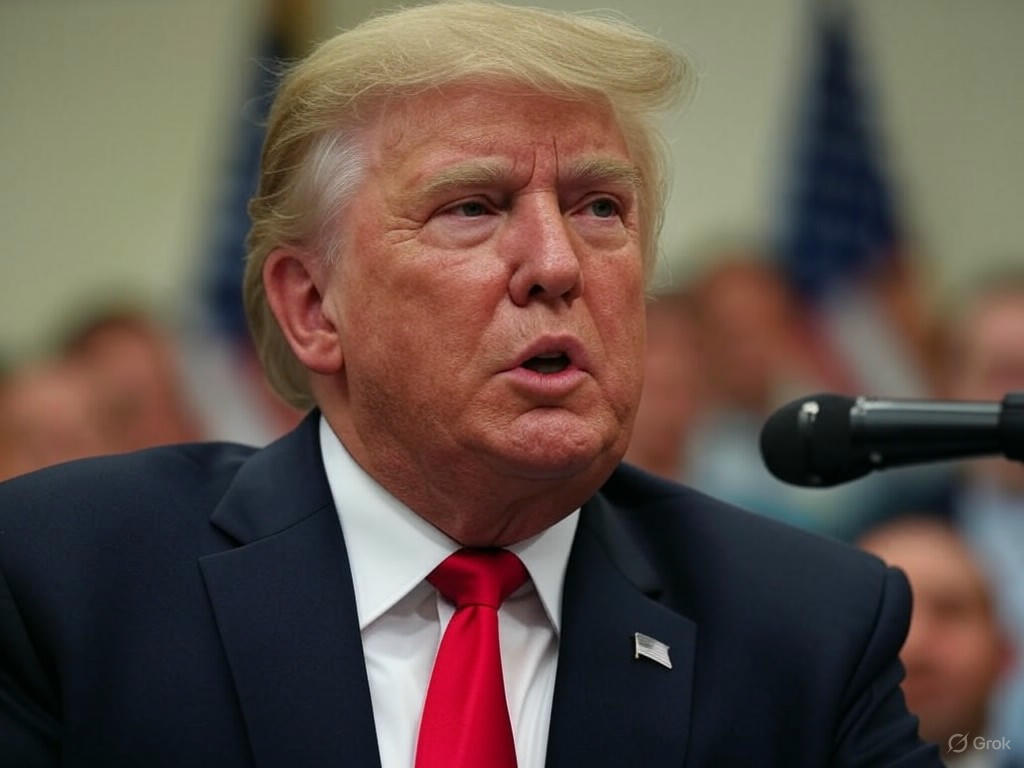Wall Street woke up to a turbulent Wednesday, as stock futures took a noticeable hit following alarming remarks from former President Donald Trump about imposing unilateral tariffs. The S&P 500, which had enjoyed a three-day upward trend, stumbled, while the Nasdaq Composite mirrored the downturn, reflecting a broader unease among investors. This sudden shift in market sentiment has sparked discussions about the potential economic ripple effects of such policy threats, especially in an already volatile global trade environment.
The prospect of unilateral tariffs, which would bypass traditional legislative or international agreements, has reignited fears of trade wars reminiscent of Trump’s previous administration. Investors are particularly concerned about how such measures could disrupt supply chains, increase costs for consumers, and strain relationships with key trading partners. Industries like technology and manufacturing, which rely heavily on international components and markets, felt the immediate brunt of the news, with major stocks in these sectors showing early signs of decline. Analysts note that the mere mention of tariffs can create uncertainty, prompting companies to delay investments or rethink expansion plans.
Beyond the immediate market reaction, experts are weighing in on the broader implications of this rhetoric. Some argue that Trump’s statements may be a strategic move to rally political support or pressure foreign governments into negotiations. However, others caution that the unpredictability of such policies could deter long-term economic stability. ‘Markets thrive on certainty, and this kind of talk introduces unnecessary risk,’ said financial analyst Sarah Benton. She highlighted that small and medium-sized businesses, which lack the resources to absorb sudden cost increases, could be disproportionately affected by any tariff hikes.
As the day progressed, traders and investors scrambled to adjust their portfolios, with many shifting toward safer assets like bonds and gold. The tech-heavy Nasdaq, often seen as a barometer for growth stocks, saw significant pullbacks in major players, reflecting a cautious approach among market participants. Meanwhile, sectors less exposed to international trade, such as utilities, showed relative resilience amid the uncertainty.
Looking ahead, the financial community remains on edge, awaiting further clarity on whether these tariff threats will materialize into policy or remain political posturing. Economic data releases and Federal Reserve commentary in the coming days will also play a critical role in shaping market direction. For now, the consensus is clear: unpredictability in trade policy is a storm cloud over Wall Street, and investors are bracing for potential turbulence. While some see this as a temporary blip, others warn that prolonged uncertainty could dampen the bullish momentum seen in recent weeks. As the situation unfolds, all eyes will be on Washington and the global stage, where words and actions alike hold the power to sway billions in market value.
